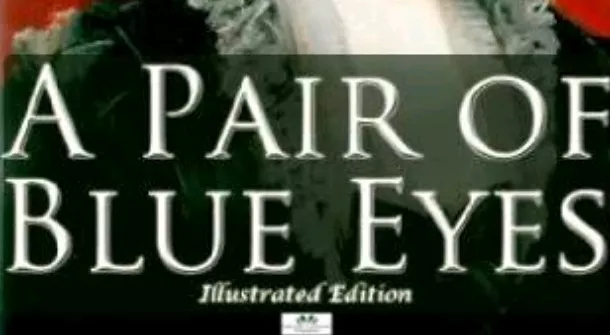A Pair of Blue Eyes
'A fair vestal, throned in the west'
Elfride Swancourt was a girl whose emotions lay very near the surface. Their nature more precisely, and as modified by the creeping hours of time, was known only to those who watched the circumstances of her history.
Personally, she was the combination of very interesting particulars, whose rarity, however, lay in the combination itself rather than in the individual elements combined. As a matter of fact, you did not see the form and substance of her features when conversing with her; and this charming power of preventing a material study of her lineaments by an interlocutor, originated not in the cloaking effect of a well-formed manner (for her manner was childish and scarcely formed), but in the attractive crudeness of the remarks themselves. She had lived all her life in retirement—the monstrari gigito of idle men had not flattered her, and at the age of nineteen or twenty she was no further on in social consciousness than an urban young lady of fifteen.
One point in her, however, you did notice: that was her eyes. In them was seen a sublimation of all of her; it was not necessary to look further: there she lived.
These eyes were blue; blue as autumn distance—blue as the blue we see between the retreating mouldings of hills and woody slopes on a sunny September morning. A misty and shady blue, that had no beginning or surface, and was looked INTO rather than AT.
As to her presence, it was not powerful; it was weak....
Elfride Swancourt was a girl whose emotions lay very near the surface. Their nature more precisely, and as modified by the creeping hours of time, was known only to those who watched the circumstances of her history.
Personally, she was the combination of very interesting particulars, whose rarity, however, lay in the combination itself rather than in the individual elements combined. As a matter of fact, you did not see the form and substance of her features when conversing with her; and this charming power of preventing a material study of her lineaments by an interlocutor, originated not in the cloaking effect of a well-formed manner (for her manner was childish and scarcely formed), but in the attractive crudeness of the remarks themselves. She had lived all her life in retirement—the monstrari gigito of idle men had not flattered her, and at the age of nineteen or twenty she was no further on in social consciousness than an urban young lady of fifteen.
One point in her, however, you did notice: that was her eyes. In them was seen a sublimation of all of her; it was not necessary to look further: there she lived.
These eyes were blue; blue as autumn distance—blue as the blue we see between the retreating mouldings of hills and woody slopes on a sunny September morning. A misty and shady blue, that had no beginning or surface, and was looked INTO rather than AT.
As to her presence, it was not powerful; it was weak....




